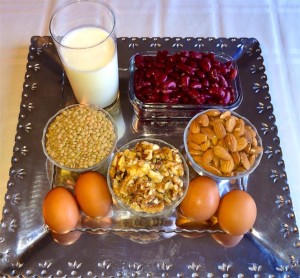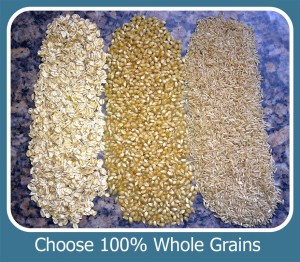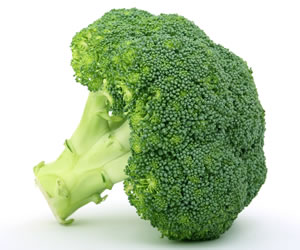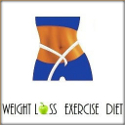-
Meal Planning Tips for Vegetarian Athletes
Monday, April 14th, 2025by Brigid Titgemeier, M.S., Public Health Nutrition
Vegetarian diets are scoring big points with more and more individuals who choose to adopt a plant-based lifestyle. The variety of benefits associated with a plant-based diet continue to be supported in research, prompting individuals to swap out their steak for tofu.
 Even athletes and fitness enthusiasts are stabbing their forks into plant-based protein in an attempt to enhance their athletic performance and strive for peak physical fitness.
Even athletes and fitness enthusiasts are stabbing their forks into plant-based protein in an attempt to enhance their athletic performance and strive for peak physical fitness. The position of the Academy of Nutrition and Dietetics states that a well-planned vegetarian diet is appropriate for all stages of life and for athletes.
This position and supporting evidence help debunk the common myth that plants are not able to provide enough energy and protein to fuel intense physical activity.
When appropriately planned, a vegetarian or vegan diet can provide the proper nutrients to support optimal physical performance.
A 2002 study looked at the difference between beef protein and soy protein in elderly men enrolled in a two week resistive training program.
The 21 older men consumed either a beef-containing diet with beef as the primary protein source or a lacto-ovo vegetarian diet with soy as the main protein source.
After two weeks, both groups improved their strength in all the muscle groups and increased their muscle size, with no difference between the two diets.
The study found that those on a plant-based diet, who completed the weight-training program, were able to successfully build muscle without eating meat.
While there are many benefits to a well-planned vegetarian diet, there can be risks associated with poor vegetarian habits that may lead to nutrient deficiencies.
Use these tips to maximize your workout and ensure that you are getting enough nutrients from a plant-based diet:
#1. Meet Your Body’s Energy Needs
Consuming enough calories is essential for an active individual to efficiently utilize and digest protein.
When the body is deprived of calories, it can lead to compromised training, performance and immune function, in addition to an increased risk of injury.
Energy needs are very individualized and depend on an athlete’s body size and composition, gender, age, and training regimen.
Fill up on high quality calories that provide enough energy and nutrients to meet your individual needs and fuel your workout.
#2. Eat a Variety of Plant-Based Foods with Protein
A 2004 review of the research conducted on vegetarian athletes reported that inadequate protein intake in well-planned vegetarian diets is unlikely. Eating a variety of plant-based foods is the best way to meet the body’s energy needs and to obtain all of the essential amino acids that are less abundant in plants.
 With the exception of soy and quinoa, plant-based foods lack all of the essential amino acids that the body cannot make on its own.
With the exception of soy and quinoa, plant-based foods lack all of the essential amino acids that the body cannot make on its own. The good news is that eating a variety of plant-based sources of protein throughout the day will provide all of the amino acids needed for proper growth and repair.
Sources: Tofu, Lentils, Black Beans, Kidney Beans, Almonds, Peanuts, Walnuts, Milk, Low-fat Cottage Cheese, and Eggs
#3. Choose Brown Rice Over White Rice
While everyone focuses on the benefits associated with protein, they overlook the benefits of carbohydrates. Carbohydrates are actually the fuel of choice for the brain and the muscles, especially for endurance athletes.
 Enhance your performance by consuming 45-65% of your calories from carbohydrates, choosing 100% whole grains the majority of the time.
Enhance your performance by consuming 45-65% of your calories from carbohydrates, choosing 100% whole grains the majority of the time. Get the most bang for your carbs by choosing 100% whole grain options that provide a rich source of B-vitamins, iron, zinc, and fiber.
Sources: Brown rice, 100% whole wheat bread, quinoa, oatmeal, and air popped popcorn
#4. Boost Iron Absorption
Iron is a mineral that is critical for athletes, particularly female athletes, because it promotes respiratory function during physical activity and helps transport oxygen to the muscle.
Although plants are a good source of iron, the bioavailability of plant-based iron is lower than the iron found in meats, poultry, and fish.
To offset this, iron recommendations are higher for vegetarians than for non-vegetarians:
- 14 mg/day for men and women after menopause
- 33 mg/day for women prior to menopause
In order to bump up the body’s absorption of iron, vegetarians can throw a little Vitamin C into the mix. Foods high in Vitamin C, such as tomatoes and peppers help boost iron absorption and should thus be paired with iron-rich foods.
Sources: Spinach, collard greens, lentils, broccoli, and chickpeas
#5. Bump Up the B-12
A review from the Journal of the Academy of Nutrition and Dietetics recommends including at least three servings of foods rich in vitamin B-12 every day.
Vegetarians can get vitamin B-12 from foods such as eggs, yogurt, and milk but vegans have a harder time meeting the recommendations for Vitamin B-12.
Deficiencies of Vitamin B-12 can lead to macrocytic anemia, which could lead to impaired aerobic performance. Vegan athletes may benefit from daily Vitamin B-12 supplementation.
Sources: Fortified soy milk, Red Star nutritional yeast, fortified breakfast cereal, cow’s milk, eggs
#6. Maintain Your Bone Health
In order for bones to stay strong, an active adult requires AT LEAST 800 mg of calcium per day. Getting enough calcium without supplementation is the most difficult for vegans and requires at least 8 servings of calcium-rich plant foods per day.
 Some evidence suggests that eating animal protein and having a high intake of sodium increases the body’s calcium excretion. Since vegans eliminate animal protein from the diet and tend to have a lower sodium intake, some believe that vegans could have lower calcium needs.
Some evidence suggests that eating animal protein and having a high intake of sodium increases the body’s calcium excretion. Since vegans eliminate animal protein from the diet and tend to have a lower sodium intake, some believe that vegans could have lower calcium needs. More research needs to be done in this area and until then, it is important to fill-up on calcium-rich foods and vegans may need to consider a supplement.
Sources: White beans, broccoli, bok choy, kale, almonds, fortified orange juice, almond and/or rice milk, fortified soy milk
Use the above tips to go vegetarian, the healthy way! Athletes who are considering adopting a vegetarian diet may benefit from scheduling an appointment with a sports dietitian to make sure that you are not at risk of any nutrient deficiencies.
(published November 19, 2013)
 Brigid Titgemeier is a nutrition assistant at the Cleveland Clinic Wellness Institute. She is a contributor to health and nutrition articles for the Huffington Post, U.S. News and World Report, YouBeauty, and other web outlets. Brigid completed her Masters in Public Health Nutrition and dietetic internship at Case Western Reserve University in Cleveland, Ohio. Her professional interests include plant-based nutrition, field-to-fork initiatives, culinary nutrition, and corporate wellness.
Brigid Titgemeier is a nutrition assistant at the Cleveland Clinic Wellness Institute. She is a contributor to health and nutrition articles for the Huffington Post, U.S. News and World Report, YouBeauty, and other web outlets. Brigid completed her Masters in Public Health Nutrition and dietetic internship at Case Western Reserve University in Cleveland, Ohio. Her professional interests include plant-based nutrition, field-to-fork initiatives, culinary nutrition, and corporate wellness.


